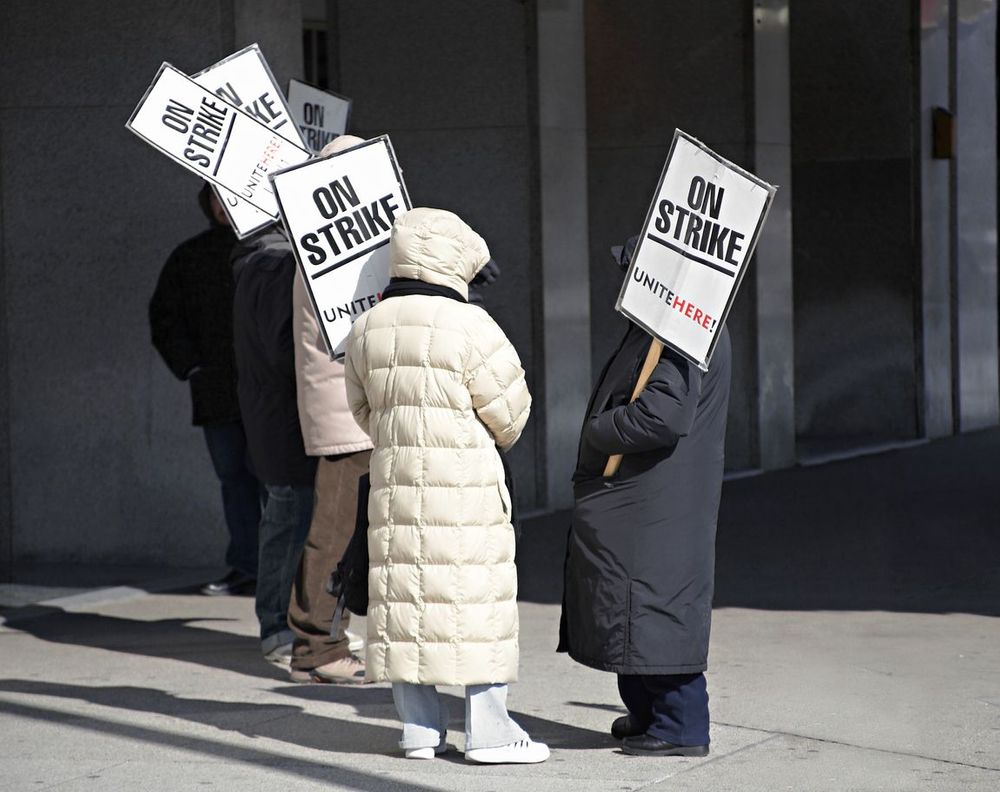
With costs of living being so high, workers are demanding more money. Thanks to labor unions, some of those demands are being met. Learn more about how labor unions have been helping workers improve their pay while working fewer hours.
During the pandemic, people from all industries struggled. Many workers needed to put their own health at risk as they showed up at offices and warehouses that were breeding grounds for the virus. Meanwhile, other workers experienced layoffs, salary reductions, and hour reductions.
After Covid slowed down, the lower and middle classes dealt with the effects of inflation while CEOs saw higher paychecks than ever. As a result, employees in multiple industries became unhappy. They felt unappreciated and mistreated. Labor unions took note of the major difference between executive pay and worker pay and decided to do something about it. Today, workers are willing to put their jobs on the line to fight for what’s right.
Today, people want a better quality of life. Even when people weren’t on strike, they were quitting jobs that didn’t have a good work-life balance. These strikes aren’t just about workers wanting better pay. In industries like manufacturing, people are tired of working so hard for so little. The pandemic made them realize that work was just work and that they wanted to spend more time doing what they love.
Labor unions tackle the issue in different ways. For instance, the UPS worker’s union threatened to strike if the company didn’t comply with new labor deals. Other companies, like Boeing and Spirit AeroSystems, have actually gone on strike. If you follow entertainment news, you probably already know that the Writers Guild of America members are on strike. To date, the strike has been in place for over 100 days. Movies and TV shows can’t film and are now months or years behind schedule.
Other companies experiencing or threatened with strikes include Amazon, Starbucks, and GM. Currently, it seems as if no industry or company is safe from the threat. The pandemic truly changed the workplace and how people think about their jobs. In 2023, over 320,000 workers participated in at least 230 strikes. And in 2022, strikes were also prevalent. There were 224,000 workers in 420 strikes that year.
With that said, there have been fewer significant stoppages in 2023 than in 2022 and 2021. This year, there were 16 work stoppages that involved at least 1000 workers each. In 2019, there were 25 major stoppages, and in 2022 there were 23.
According to recent surveys, union approval ratings are higher than they have been in decades. One Gallup survey showed that over 70% of Americans approved of labor unions in 2022. That number is higher than it’s been since 1965. With so much support, it’s easier for unions to fight for what they want.
It’s no secret that certain industries are in the midst of worker shortages. Due to these shortages, some companies can’t afford to deal with strikes. This is particularly true for airline pilots, who have leveraged their power to improve pay.
In the entertainment world, writers and actors haven’t just stopped producing content. They also brought an end to marketing their work. With no talent to market studio efforts, studios are putting off major launches.
In some battles for better wages, workers saw huge victories. For instance, strikes at Deere and CNH Industrial resulted in double-digit wage increases. They also led to improved pensions and better cost-of-living adjustments. The UAW was to thank for that result. After that victory, the UAW is now asking for similar changes from Detroit auto companies.
More recently, UPS workers passed a five-year labor deal. The deal promises large wage increases and better schedules and work rules. Company drivers are part of the Teamsters Union and now will average $170,000 in pay and benefits after the five years. There are approximately 340,000 UPS drivers who benefit from this change.
Delta Air Lines and American Airlines pilots also ratified contracts that will result in billions of dollars more. After picketing and having strike authorization votes, pilots now have better pay. Similarly, United Airlines made a deal with pilots in its pilot union to give raises as much as 40% higher over a period of the next four years.
Whether or not you’re in a union, the recent victories could mean good things for employees and job seekers. As executives watch the strikes and their serious consequences, they want to keep their employees happy. They’re offering better benefits, more money, and an improved quality of life.
As you look for a new job, you should seek out a position with an employer who cares about its employees. Before you accept a job offer, find out what people have to say about the working conditions. Think twice before accepting a job with an employer that forces long hours or any other undesirable conditions. Because worker shortages still exist, you may be able to find a job that pays you more for less work.
As an employee, you may not need to leave your job to reap the benefits of these successful strikes. Rather, you can talk to your boss about a salary increase. If the company doesn’t have enough money for that, you may be able to negotiate for a better benefits package or better hours.
When you enter negotiations, don’t be too forceful. You don’t need to give an ultimatum. Instead, you should bring up the reasons why you deserve whatever you’re asking for. With the prevalence of strikes, an employer is more likely to accommodate you.
Now is the perfect time to assess your current job. If you’re not happy, it’s the right time to search for a new one.
Lorem Ipsum is simply dummy text of the printing and typesetting industry. Lorem Ipsum has been.
